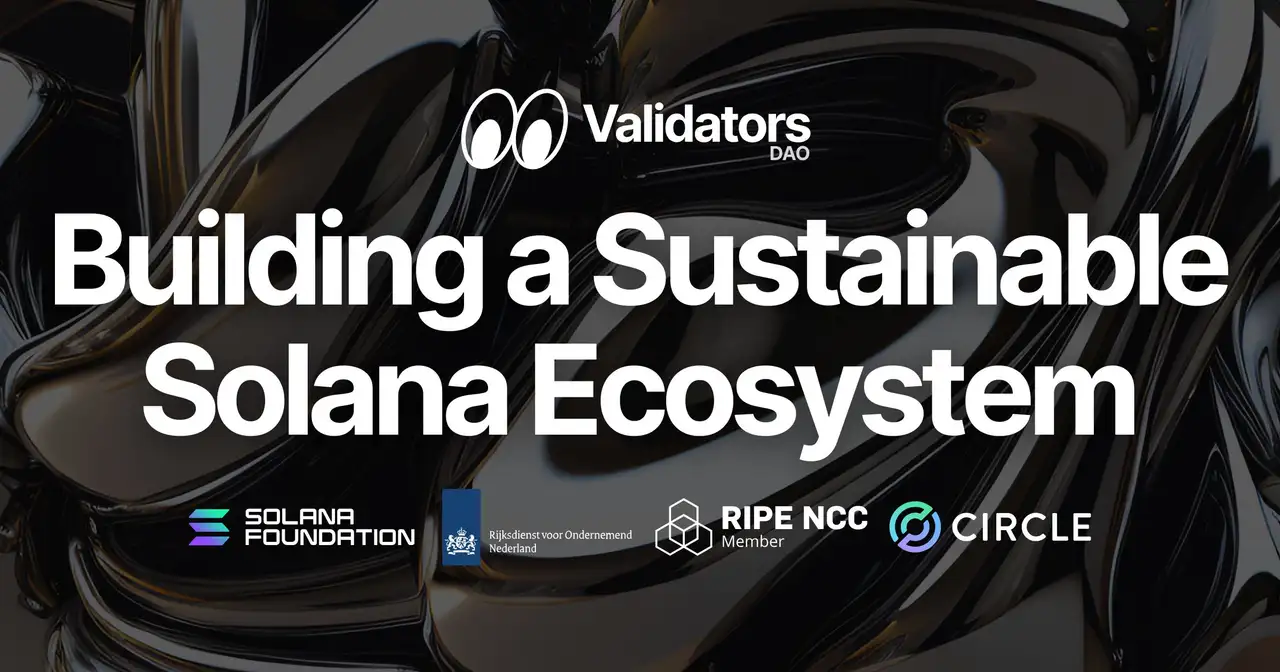What is Validators DAO?

Abstract
As of October 2025, the Solana network faces structural challenges such as stake centralization, a decline in validator count, and imbalances in bandwidth prioritization. These issues influence one another and undermine Solana’s core principles of being high-speed, decentralized, and fair.
The reduction in validators and the concentration of stake diminish decentralization and threaten the overall reliability of the network. At the same time, the mechanism known as SWQoS (Stake-weighted Quality of Service)—introduced by Solana as an anti-spam measure—determines transaction priority based on stake weight.
This mechanism is more than a simple spam countermeasure; it represents a fundamental concept for maintaining a decentralized network over the long term. In a decentralized system without central evaluation, treating all transactions equally allows spam to proliferate, destabilizing the network. Just as in economic systems, a structure that prioritizes trustworthy transactions and nodes is essential for network sustainability. SWQoS expresses this “trust” through stake weight, giving higher priority to transactions from reliable RPCs and validators, thereby maintaining the integrity of the Solana network.
However, practical implementation of SWQoS is not simple. Configuration and operational understanding are complex, and there are limited tools to verify whether settings are properly applied. When validators and RPCs are managed by separate organizations, coordination between them is required—a process that adds both technical and operational overhead. This integration task is costly in both time and resources, and there is still no sufficient means to verify whether the connection has been properly established.
As a result, only a limited number of nodes have correctly implemented SWQoS, leaving large portions of bandwidth underutilized even though many projects require it. Even developers operating dedicated RPCs often struggle to apply SWQoS bandwidth. Validators, on the other hand, must restart their nodes for every configuration update, which lowers validator scores and rewards, causing many to avoid doing so. Although “no-downtime migration” can mitigate this, it requires running multiple nodes concurrently—an approach that is costly in time, capital, and operational resources, making it impractical for small incentives.
Consequently, only validators with substantial stake allocations can afford to adopt SWQoS, leaving small-scale validators excluded and deepening bandwidth concentration. Thus, Solana has fallen into an inefficient structure where bandwidth exists but remains unused.
Validators DAO addresses these problems from both technical and economic perspectives. Through the SWQoS Market Software, it provides an environment where bandwidth can be safely and transparently traded and where fair incentives can be distributed based on stake and usage.
SLV (Solana Validator Toolkit) is an open-source tool that drastically reduces the learning and operational costs associated with validator and RPC setup and maintenance. Validator operations in Solana require advanced knowledge and continuous maintenance, often leading small operators to exit. SLV solves this by automating node setup, monitoring, updates, and recovery, allowing validators to run more efficiently. This gives validators and developers the time and freedom to focus on network improvement and product development instead of daily maintenance tasks.
SLV will also include features to support Solana application development in the future. With this functionality, developers will be able to build high-quality Solana environments quickly and use SLV to develop Web3 applications or staking strategies more effectively.
Furthermore, SLV provides seamless connectivity to the SWQoS Market, allowing participants to easily engage with its economic incentive structure. This framework supports the ongoing operation of validators and provides the foundation for maintaining Solana’s decentralization in a practical way.
Maintaining Solana’s decentralization and efficiency requires technology, a transparent and fair market economy, and incentives. Validators DAO integrates these three through SLV for operational support, SWQoS Market Software for economic infrastructure, and elSOL for enhanced incentives—together forming a sustainable model for decentralized operation. Each component plays a central role, complementing one another to align stake, bandwidth, rewards, and infrastructure—realizing a balanced, sustainable Solana ecosystem.

